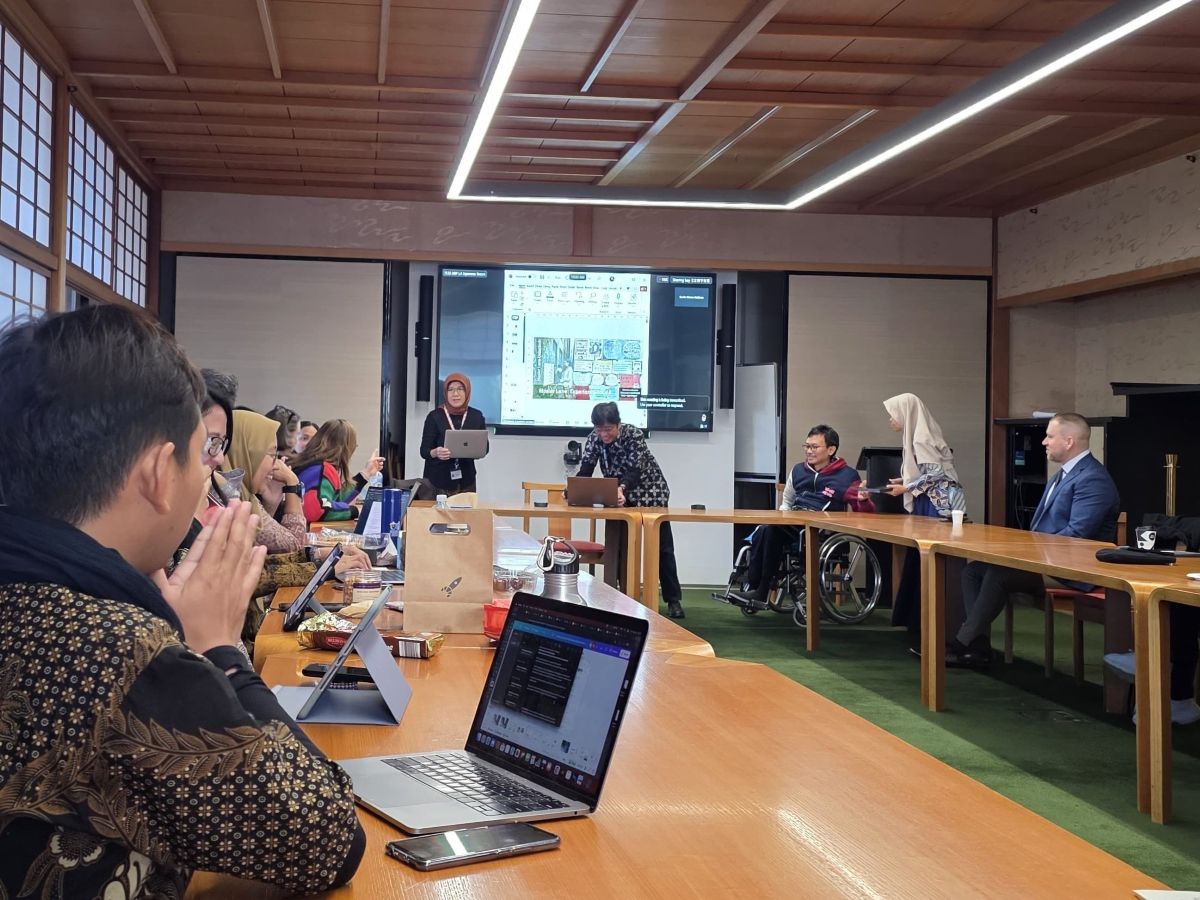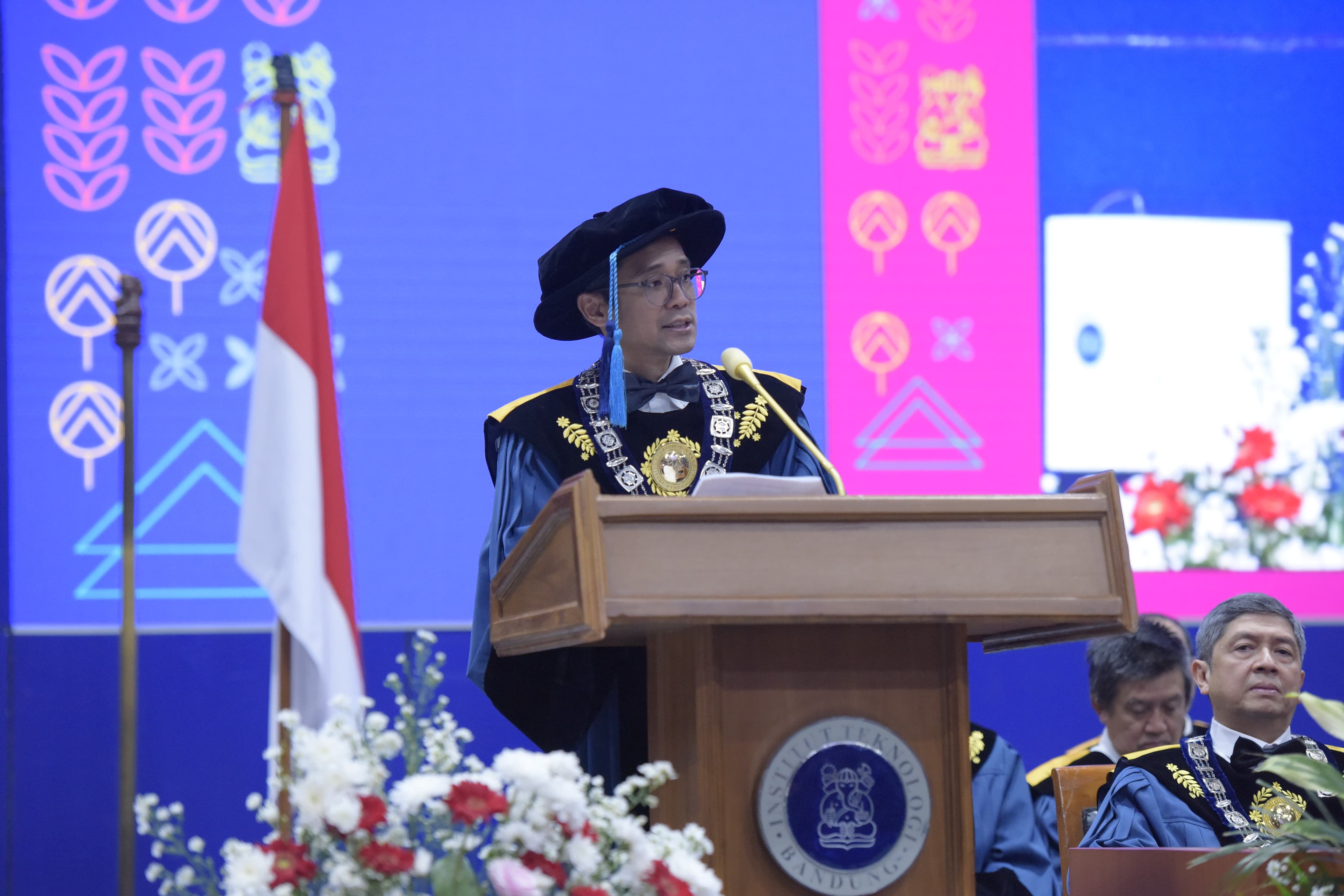The Inauguration and Opening of Academic Activities in ITB Cirebon Campus
By Adi Permana
Editor Adi Permana

CIREBON, itb.ac.id — Institut Teknologi Bandung (ITB) as a State University with Legal Entity (PTN-BH) has started its multicampus program as a means of institutional development and role expansion. Apart from the campus on Ganesha Street, Bandung, and in Jatinangor, ITB now has a new campus in Cirebon.
Today will be an important moment for ITB because the Cirebon Campus will start its educational activity on 17 January 2022 in the second semester of the 2021/2022 Academic Year. Three undergraduate study programs will conduct lectures there, the Urban and Regional Planning Study Program, the Industrial Engineering Study Program, and the Craft Study Program.

*ITB Rector signing stone inscription marking the inauguration of ITB Cirebon Campus (Photo: Adi Permana / ITB Public Relations)
Formerly, ITB students from Cirebon Campus carried out their education activities at ITB Jatinangor Campus. Meanwhile, two study programs, Geophysics Engineering and Oceanography will begin their study at Cirebon Campus in the first semester of the 2022/2023 academic year, while Mining Engineering and Petroleum Engineering will start in the second semester.
The presence of ITB Cirebon Campus is projected to accommodate approximately 10 thousand students. There are two campus complexes in the ITB Cirebon Campus, namely in Watubelah and Arjawinangun. The academic activity will utilize both campus complexes. Previously, ITB in collaboration with the South Korean Government has inaugurated the MTCRC (Marine Technology Cooperation Research Centre) on the Watubelah Campus in 2018.
The ITB Rector, Prof. Reini Wirahadikusumah, Ph.D., said that the main objectives in developing the multicampus program are to increase the role of ITB in building excellence research and innovation in the future, contributing to the development of human resources that possess both international quality and local wisdom. Multicampus is proof of ITB's commitment to materializing its mission as a locally relevant and globally respected university. Reini also emphasized that the implementation of ITB Campus Cirebon is equal in both its academic services and student affairs with the ITB Ganesha and Jatinangor Campuses.

*Rector planted a Trembesi tree as a symbol of the inauguration of learning activities at ITB Cirebon Campus
“The preparation of ITB Cirebon Campus has begun from 2015, and the start of academic activities in Cirebon marks a new era in higher education, that is Education 4.0 which prioritizes information/digital technology to enable simultaneous learning from different locations. With the existence of this ITB Cirebon Campus, the implementation of the ITB multicampus concept can function completely,” said Rector.
Witnessed by the representative of the Ministry of Education and Culture, Mohammad Sofwan as a Director of dikti resources, the Regent of Cirebon Imron Rosyadi, and the elements of Muspida Cirebon, the inauguration and the opening of academic activities in ITB Cirebon Campus were carried out by the Governor of West Java, Ridwan Kamil. As a symbolic gesture, the Governor who is also an alumnus of ITB was expected to sign the stone inscription and join the tree planting section with the ITB Leadership, along with other guests. However, he was unable to attend the event on-site and delivered his remark virtually.

*West Java Governor Ridwan Kamil was present virtually at the inauguration and opening of the learning activities event at ITB Cirebon Campus. (Photo: Adi Permana/Public Relation)
ITB Cirebon Campus was built on top of a 30-hectare area in the Arjawinangun District, Cirebon Regency, and is still in the construction phase. Currently, two buildings have finished the construction and are ready to use, the Gedung Multifungsi A and B. The presence of ITB Cirebon Campus is expected to increase the level of equity of higher education in the Ciayumajakuning region (Cirebon City/Regency, Indramayu, Majalengka, and Kuningan) especially, and in West Java generally, in addition to improving research in the field of science, technology, art, and humanities.
Translator: Favian Aldilla R (Civil Engineering, 2019)

.jpg)

.jpg)
.jpg)
.jpg)

